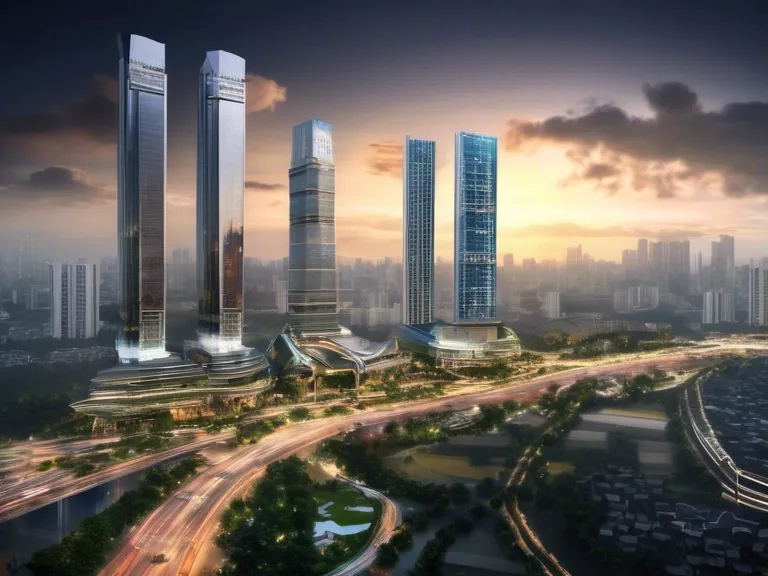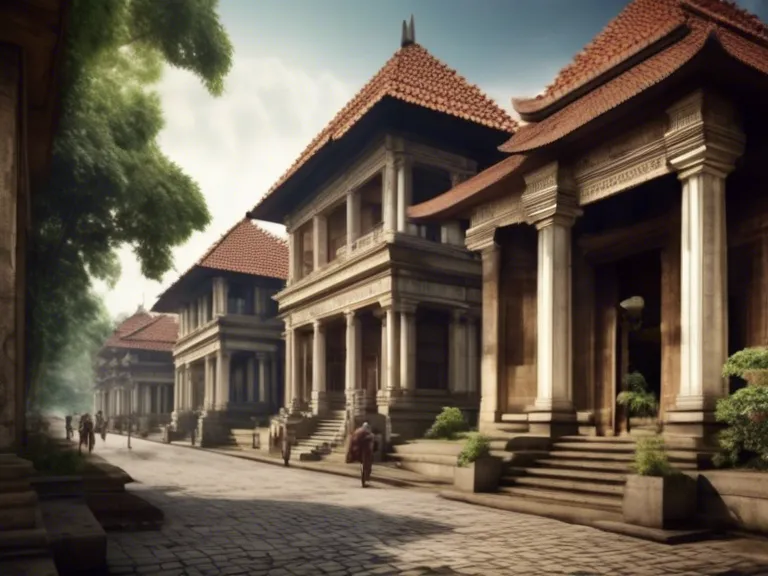
Introduction
Indonesia's ambitious plan to relocate its capital city from Jakarta to a new site in East Kalimantan has been a topic of great interest and discussion. This massive undertaking, known as the New Capital Project, is aimed at addressing the challenges faced by Jakarta, such as overcrowding, pollution, traffic congestion, and sinking land due to excessive groundwater extraction. In this article, we will explore the emerging trends surrounding Indonesia's New Capital Project and its future prospects.
Current Status of the New Capital Project
The Indonesian government officially announced the decision to move the capital in August 2019. The new capital city is planned to be built in the provinces of East Kalimantan on the island of Borneo, covering an area of approximately 180,000 hectares. The site was chosen for its strategic location, natural beauty, and lower risk of natural disasters compared to Jakarta.
Infrastructure Development and Sustainability
One of the key aspects of the New Capital Project is the development of modern infrastructure to support the new city's growth and sustainability. This includes the construction of transportation networks, utilities, green spaces, and smart city technologies. The government aims to create a sustainable and eco-friendly city that prioritizes environmental conservation and renewable energy sources.
Economic Opportunities and Investment Potential
The relocation of the capital is expected to open up new economic opportunities and attract investment to the region. The development of the new capital city will create jobs, stimulate economic growth, and drive innovation in various sectors. Investors are keen to participate in infrastructure projects, real estate development, and other ventures related to the establishment of the new capital.
Social and Cultural Implications
The New Capital Project will not only have economic and infrastructure impacts but also social and cultural implications. The relocation of the capital will bring diverse communities together, create new cultural exchanges, and foster social integration. It is essential to consider the needs and aspirations of local communities and indigenous groups in the planning and development of the new capital city.
Challenges and Considerations
Despite the ambitious vision for the new capital city, there are several challenges and considerations that need to be addressed. These include land acquisition, environmental sustainability, social equity, governance, and financing. It is crucial for the government to engage with stakeholders, conduct thorough assessments, and implement transparent and inclusive decision-making processes.
Future Prospects and Conclusion
The New Capital Project represents a significant opportunity for Indonesia to create a modern, sustainable, and inclusive capital city that can serve as a model for urban development in the 21st century. By leveraging emerging technologies, promoting green initiatives, and fostering economic growth, the new capital has the potential to become a thriving hub of innovation and prosperity. As the project moves forward, it is essential to prioritize collaboration, transparency, and community engagement to ensure its success and long-term viability.
In conclusion, Indonesia's New Capital Project is a bold and forward-thinking initiative that has the potential to transform the country's urban landscape and drive sustainable development. By addressing the challenges and embracing the opportunities presented by this project, Indonesia can pave the way for a brighter future for generations to come.



